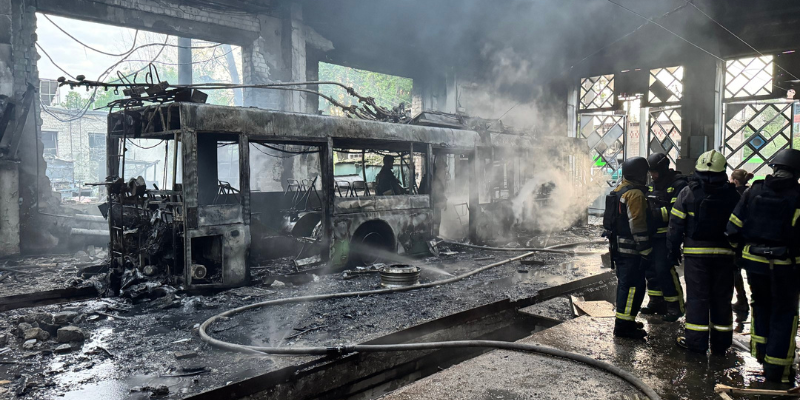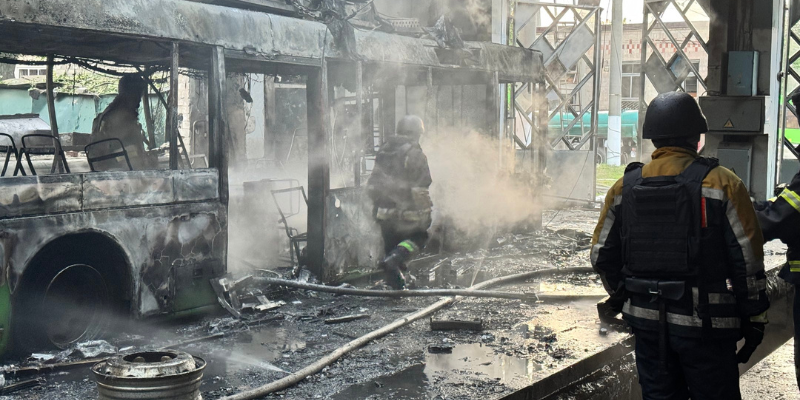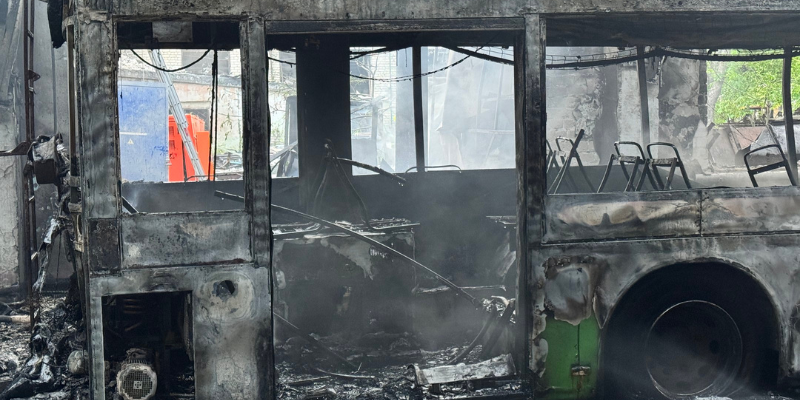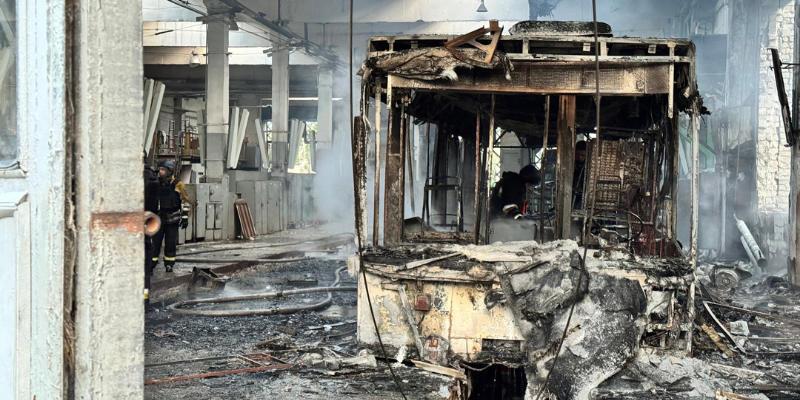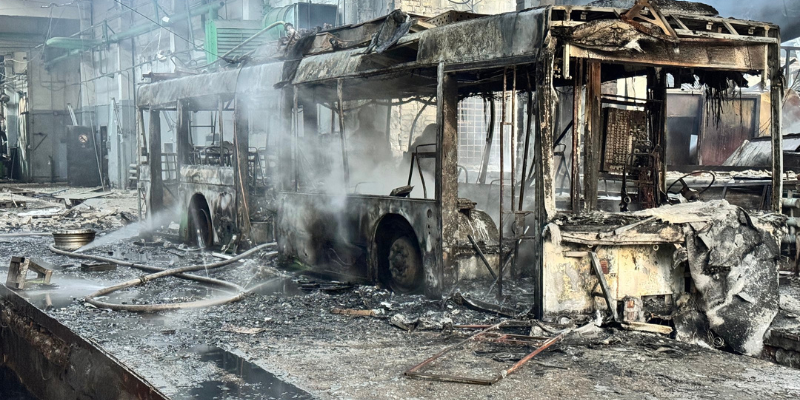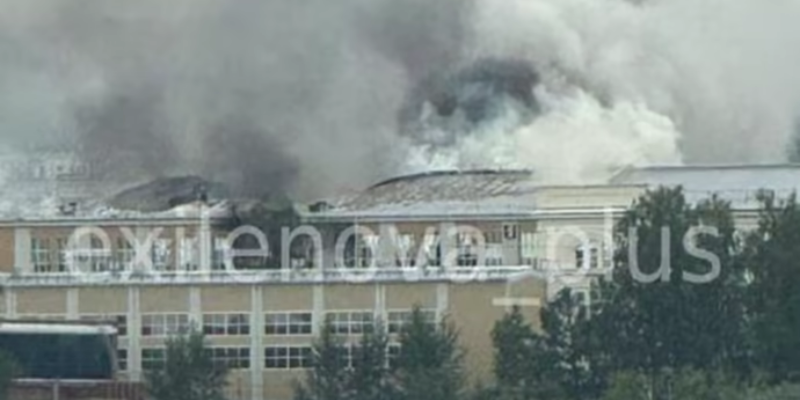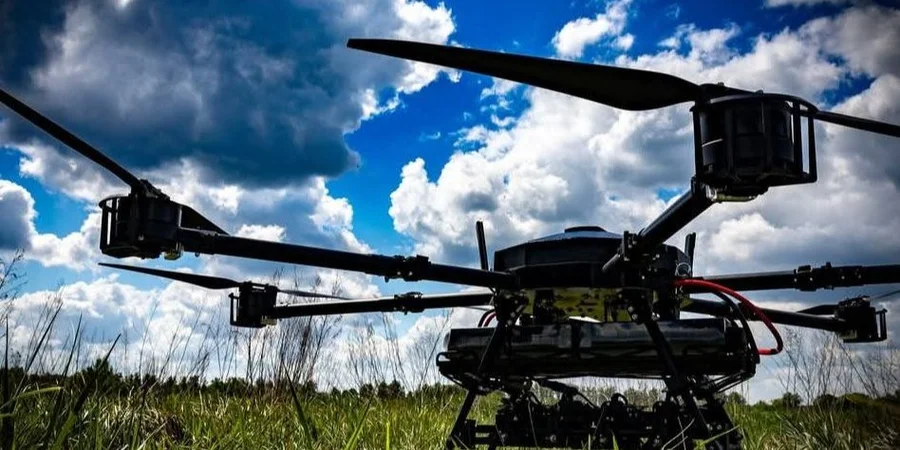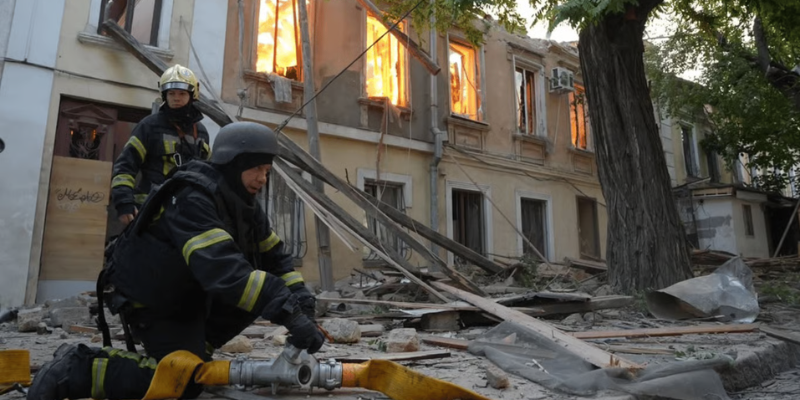UN monitoring team: North Korea sent 9 million shells and 100 ballistic missiles to Russia
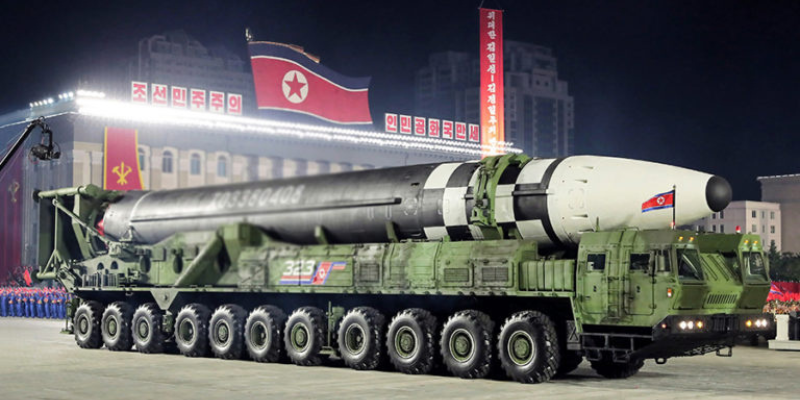
North Korea has transferred as many as 9 million artillery shells and at least 100 ballistic short-range missiles to Russia since early 2024, marking one of the most significant weapons transfers to Moscow amid its war against Ukraine, according to a newly released report by the Multinational Sanctions Monitoring Team (MSMT), a group established by 11 United Nations member states to track sanctions and illicit arms transfers.
The scale of the weapons transfer marks one of the most significant and most consequential weapons deals between the two isolated states in decades and provides Moscow with a crucial lifeline for its ongoing war against Ukraine that has entered its fourth year.
Military experts say that the influx of North Korean munitions may be helping Russia offset severe shortages caused by nearly two years of intense combat and international sanctions during which North Korea started the transfers.
According to the MSMT report, the shipments were moved via cargo vessels to Russia’s Far East ports, such as Vostochny and Vladivostok, before being transferred by rail to ammunition depots in the country’s southwest near the Ukrainian border.
The artillery shells are reportedly being used on multiple fronts, while the ballistic missiles have been employed in targeted strikes against Ukrainian population centers.
Ukrainian officials have confirmed that several of the North Korean missiles were used in recent attacks on Kyiv and Zaporizhzhia, with forensic analysis of debris revealing North Korean markings and unique engineering features linked to the KN-23 and KN-25 missile systems. Kyiv officially has described their use as “tools of terror” that are used to attack civilians and cripple infrastructure, a violation of international humanitarian law.
This report also mentions growing strategic support cooperation between Pyongyang and Moscow, with North Korea receiving critical food, aid, fuel, and possible military technology transfers in return. This partnership, according to analysts, signals a new phase in the global geopolitical alignment, as authoritarian regimes increasingly corroborate to bypass Western sanctions and challenge international norms. These weapons transfers also may violate multiple UN Security Council resolutions, according to the report.
SOURCESymbolic number of the Day
Ukraine now producing 40 percent of its military needs domestically, foreign minister says. Ukraine’s domestic defense industry is now covering 40 percent of the military’s needs, a major milestone in wartime self-sufficiency, according to Ukrainian Foreign Minister Andriy Sybiha.
Speaking alongside his Turkish counterpart Hakan Fidan at a joint press conference, Sybiha said Ukraine has “scaled up weapons production dramatically,” with some categories of military equipment seeing output increase by up to 35 times compared to pre-war levels.
“In some areas, what we now produce in a single month exceeds what some countries with far larger defense budgets manage in an entire year,” he said. “This includes artillery shells of NATO caliber, which we didn’t manufacture before the war.”
Ukraine’s surge in defense manufacturing includes not only traditional munitions but also drone technologies, an area where Sybiha said Ukraine has become a global leader.
Still, the minister acknowledged that additional investment is needed to maintain and expand these gains. He emphasized the importance of reducing dependence on foreign suppliers for critical weapons systems, framing self-reliance as both a military and economic priority.
The rapid transformation of Ukraine’s defense sector comes amid intensifying battlefield needs and an uncertain international supply environment. As foreign aid fluctuates and geopolitical tensions rise, Ukraine is betting on its domestic capabilities to ensure both resilience and readiness.
SOURCEWar in Pictures
Russian Shahed drones strike Kharkiv trolleybus depot, injuring workers and damaging homes. Russian forces launched a drone attack on Kharkiv early Friday, striking a municipal trolleybus depot in the city’s Slobidskyi district with eight Shahed drones, according to local authorities. At least 18 trolleybuses were damaged, one completely destroyed, and two depot workers were injured.
Mayor Ihor Terekhov said the targeted depot served as a maintenance hub for the city’s public transportation system. Fortunately, most of the fleet had been relocated across the city in advance, likely preventing more severe losses.
“This is civilian infrastructure. There have never been military personnel or military targets here,” Terekhov stressed. In addition to the depot damage, 33 nearby residential buildings sustained blast damage, mostly shattered windows and debris impacts.
SOURCEVideo of the Day
Russian drone strike destroys postal depot in Odesa region, disrupting vital civilian supply chain. A Russian drone attack overnight on May 30 destroyed a Nova Poshta shipping facility in Ukraine’s southern Odesa region, igniting a large fire and damaging nearby cargo trucks, according to local emergency services.
The attack sparked a blaze that spread across roughly 3,200 square feet, gutting the postal warehouse. Firefighters and National Guard personnel worked through the night to extinguish the flames. No casualties were reported.
Nova Poshta is Ukraine’s largest private postal and logistics company and has played a critical role in maintaining civilian supply chains during the war. Its facilities have become recurring targets, as Russia increasingly strikes infrastructure that supports daily life far from the front lines.
While the damage was localized, the attack sends a broader message: even civilian logistics networks are not off limits in Russia’s effort to pressure Ukraine from within. For many Ukrainians, the local Nova Poshta depot is not just a place to pick up parcels—it’s a lifeline for medicine, supplies, and contact with loved ones.
SOURCEInstitute for the Study of War (ISW) report

Key Takeaways:
- Russian officials continue to dictate the terms and timing of peace negotiations with Ukraine and are attempting to obfuscate the current state of negotiations. Russian officials are setting conditions to falsely accuse Ukraine of delaying negotiations.
- Russia is forcing Ukraine to make concessions on the timing, terms, and location of negotiations.
- ISW previously assessed that Russian forces are leveraging the fact that Ukraine and Russia set no concrete deadlines for the next steps in the peace process in order to delay the process altogether and prolong the war.
- Western reporting indicates that the People’s Republic of China (PRC) is increasing drone deliveries to Russia while reducing sales to Ukrainian and Western buyers, further demonstrating China’s increasingly overt support for Russia’s war effort in Ukraine.
- A Ukrainian defense manufacturer and official announced that Ukraine has fielded a long-range drone with sophisticated artificial intelligence (AI).
- Ukrainian forces recently advanced near Kurakhove and Russian forces recently advanced in northern Kharkiv Oblast and near Kupyansk, Borova, Lyman, and Pokrovsk.
War heroes

In memoriam: Ukrainian soldier Serhii Pichkorskyi, a hero of Ukraine’s defense forces
Master Sgt. Serhii Pichkorskyi, known by the call sign “Didukh,” was killed in action on Aug. 24, 2024, during a combat mission near the city of Novohrodivka in Donetsk region. He died in a Russian mortar strike. Just a week earlier, he had turned 54.
Pichkorskyi was born in Bila Tserkva, Kyiv region, and graduated from Secondary School No. 13. From 1988 to 1990, he served in the Ministry of Internal Affairs and later worked in the local police force. Eventually, he left the service and became an auto painter, running his own garage. He had a special love for dogs.
In the early days of Russia’s full-scale invasion, Pichkorskyi joined the Territorial Defense Forces, later transferring to the Armed Forces of Ukraine. He served in military unit A1937 as master sergeant of a pontoon company in an engineering battalion.
“His first call sign was ‘Ninja,’” said his younger sister, Svitlana. “But when he was deployed near Chasiv Yar in November 2023, the younger soldiers started calling him ‘Didukh’ — a traditional symbol of protection — because he always looked out for them. He was a fair, responsible commander who never left tasks to others and was always there with his men.”
For his exemplary service, Pichkorskyi was awarded the “Golden Cross” distinction.
“My father was a true patriot and a courageous man,” his daughter, Inna, wrote. “He defended his country and his family with all his strength. Under fire, he rescued others and gave aid, risking his own life. Everyone who knew him will remember his bravery, his dedication, and the way he lived his values as a man, a father, a grandfather, a brother, and a son. We are deeply proud of our Hero.”
“Serhii was someone you could always rely on,” Svitlana added. “He became a second father to many of the younger soldiers.” Pichkorskyi was laid to rest in his hometown of Bila Tserkva. He is survived by his large extended family and many friends.
*Pichkorskyi’s story on the Heroes Memorial – a platform for stories about the fallen defenders of Ukraine.
SOURCELatest news
- Rump envoy: US ready to discuss Russia’s demands on NATO non-expansion guarantees
- Russia attacked Ukraine with a new drone, it reaches speeds of up to 750 km/h
- Kellogg: US advises Ukraine not to abandon talks with Russia
- US threatens to exit peace talks over Russia’s continued aggression
- IAEA official: No sign of preparations to restart Zaporizhzhia
- China сuts drone sales to West but supplies them to Russia
